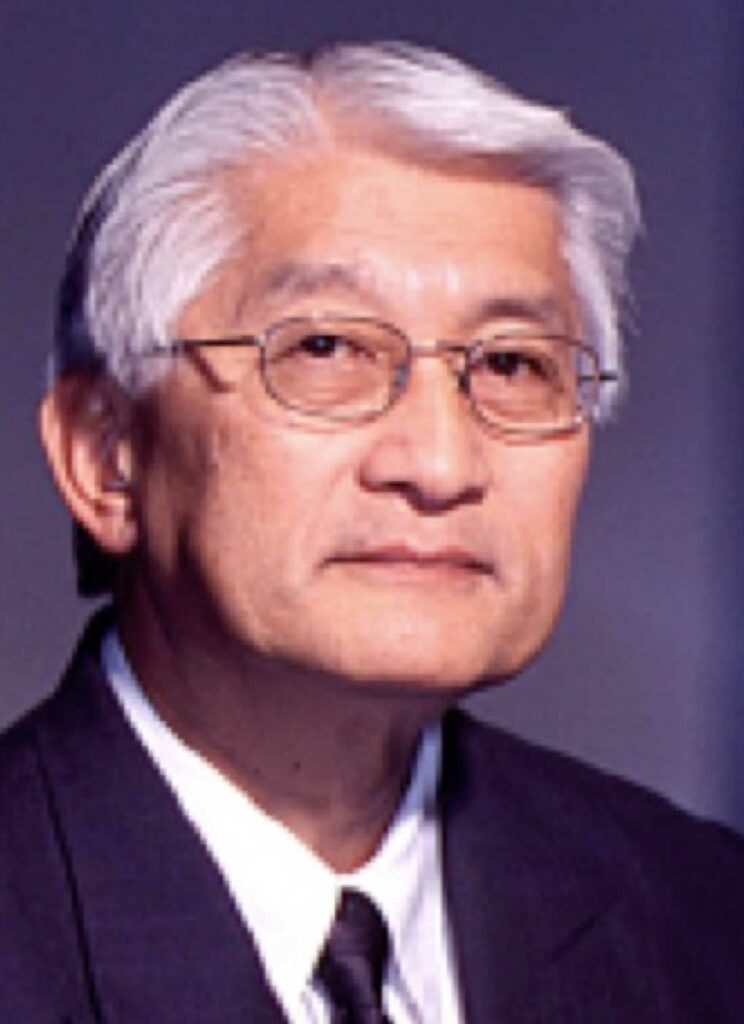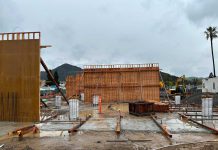
My name is Hubert Yoshida and in 1965, I was the platoon commander of 1st Platoon, H Company, 2nd Battalion, 7th Marines. We were one of the first Marine units to fight in Vietnam. This is a narrative of our first engagement with the Viet Cong and a memoriam for LCPL Dupey, Raymond Van Keuren, who was the first Marine in our unit to be killed in the Vietnam war.

Our Battalion, 2nd Battalion, 7th Marines, was assigned to provide security for an Army depot at Qui Nhon, which had been recently attacked by Viet Cong sappers. We made an unopposed amphibious landing on the beaches of Qui Nhon, then immediately deployed around the hills surrounding the depot.
My platoon was assigned to an observation post at Cu Mong pass which was on Route 1, the main road that ran the length of Vietnam along the coast. Our area of responsibility was everything North of the pass. Everything South of the pass was the responsibility of allies, the South Vietnamese forces.
We established a base camp near the road at the top of Cu Mong Pass and set up our observation post on the highest peak above the pass which gave us a clear view of Route 1 to the south for several miles. Along that road were several small villages, no more than a few huts in a cleared area.
After a week we began to notice two armed men several miles down the road, in the valley below us, stopping people who were using the road. At first, we thought they were our South Vietnamese allies, since they supposedly controlled that area. When we checked with our South Vietnamese contacts, they denied having any men in that area.
So we told them that we could send a squad down to that location under cover of darkness and try to capture these men. Since this was their area of responsibility I had to lay out the coordinates of my plan before I could get permission to enter their area.
The next night, July 17, 1965, I set out to lead a squad of men, 15 Marines from my platoon, to a position on a small hill above the area where we had seen the two armed men. We waited until the nearly full moon had set, about 1am, and made our way through the pitch black darkness along a river bed that paralleled the road. It took us almost three hours to get into position. We were certain that we had not been seen or heard. We were all excited to be on our first covert mission of the war.
Soon the sun was starting to color the sky and we could hear the villagers start to stir as they prepared for their day. Normally the men we were waiting for would be on the road around 7am. We waited, past 8 am, then 9 am, and finally at 10:30am, I decided we had been compromised and called off the mission. We headed down to the road which was now filled with villagers who were heading up to Cu Mong Pass and the markets in Qui Nhon.

When we appeared, the villagers on the road seemed surprised and greeted us with nervous smiles and a lot of bowing. They probably had never seen Americans before, much less American Marines in combat gear.
My Marines were mostly young men just a year or two out of high school, but they looked like giants compared to the skinny Vietnamese in black pajamas. Some of the Marines were passing out C ration gum and chocolates to the children.
It was a Sunday morning and if I were back in the states, my wife and I would be at church teaching Sunday School. Our church was a Japanese Free Methodist Church in Anaheim California, so the Vietnamese children around us reminded me of the Japanese American children attending our Sunday School.
That morning I remember feeling good about our presence there. I thought that our show of force and the natural friendliness of my Marines would surely make the villagers feel safer from their Viet Cong oppressors. Although we didn’t capture the men we came after, I felt that our presence there was helping to win the hearts and minds of the local Vietnamese.
We joined the villagers as we walked on the road toward our base camp at Cu Mong Pass. Then as we rounded a small bend in the road, the Vietnamese villagers disappeared. Before this could register in my mind, two shots rang out and we dived off the road to take cover in the river bed.
No one knew where the shots came from. It was somewhere from the high hills to our far right. Mitchel, my radio man, had a grazing wound to his leg, but he could still walk and no one else was hit.
I cursed myself for being so careless. If my mission had been compromised, I should have expected that they would have set up an ambush for us and I shouldn’t have been walking my men down the middle of an open road.
I was frustrated because I had no idea where the shots came from except that it was from the jungle covered mountain on our right.
My first desire was to charge up the mountain and find that sniper. But I decided not to risk my men by sending them up into this unknown jungle after a sniper who could be anywhere and would be hard to distinguish from the rest of the villagers. It also occurred to me that the disappearance of the seemingly friendly villages indicated that they were in on this and were probably Viet Cong sympathizers.
After a little while, with no further shots, it appeared to be a random sniper and not a full scale attack, so I decided to head back to base camp under cover of the trees along the river bed.
About halfway back, we had to cross an open area where we received more sniper fire. This time no one was hit and some of the men thought they knew where it came from and were firing back. This was from another mountain from the original one that the first sniper fired from.
This told me that there were two snipers who knew our route and were well positioned to intersect us. I decided to call in the H company mortars and gave them the grid coordinates of the suspected sniper location.
The first round landed nowhere near the grid location I gave them and almost landed on our position. We had only been in Vietnam nine days at that time so I decided to call off the mortars since we didn’t have a clear target and we needed to have better coordination before we started lobbing mortars around.
We continued on and were in sight of our base camp when a single shot rang out. At first, I thought that it was just another wild round until we found our point man, LCP Van Keuren. He lay crumpled on the edge of the road and had been shot in the head.
LCPL Dupay Raymond Van Keuren was three years into his enlistment. He was one of the more experienced Marines, having spent a year in Okinawa, before joining H Company in Camp Pendleton in 1964. He had just turned 20 years old the previous month.
He was good at navigating through the jungle and was one of our best Marines, always volunteering for the tough assignments. We carried his body back to base camp only a short distance away.
LCP Van Keuren’s death marked the darkest day in my Vietnam experience. I felt that his death was on me. What had started out as an exciting adventure ended up in death and frustration. I learned then not to share all my plans with my allies, not to be lulled into a state of complacency, always coordinate with my mortars and other supporting arms before a mission, and always to stay vigilant to the very end even when the base camp was in sight.
I mourned his death deeply and had the difficult task of writing a condolence letter to his grieving parents. This was the first of many letters that I had to write before my tour in Vietnam was done.
In 2016, when I had the opportunity to speak at an executive conference for Hitachi Data Systems in Danang, I took the opportunity to visit some of the battlefields that I had fought on during the Vietnam War. One of the places was Cu Mong Pass.
When I visited my former base camp at Cu Mong Pass, I found a large monument erected there. My driver interpreted what was written on the monument for me. It said that on 17 July 1965, three heroic commandos from the National Liberation Front destroyed 50 American soldiers at this site. This date was the date that we set out on our ill-fated patrol.
Although only 15 men went on this patrol, I had a total of 50 men assigned to me at the base camp at Cu Mong. Apparently, this monument referred to the action I described above. These heroes must have been the ones that I had tried to capture back then. The third man that they mentioned may have been the one who leaked our plans to the others.
Although their results were greatly exaggerated, I must admit that they got the better of us that day and the whole war was a dark and frustrating tragedy.
Hubert Yoshida is a Morgan Hill resident and the author of “Operation Utah: The Die is Cast.”







